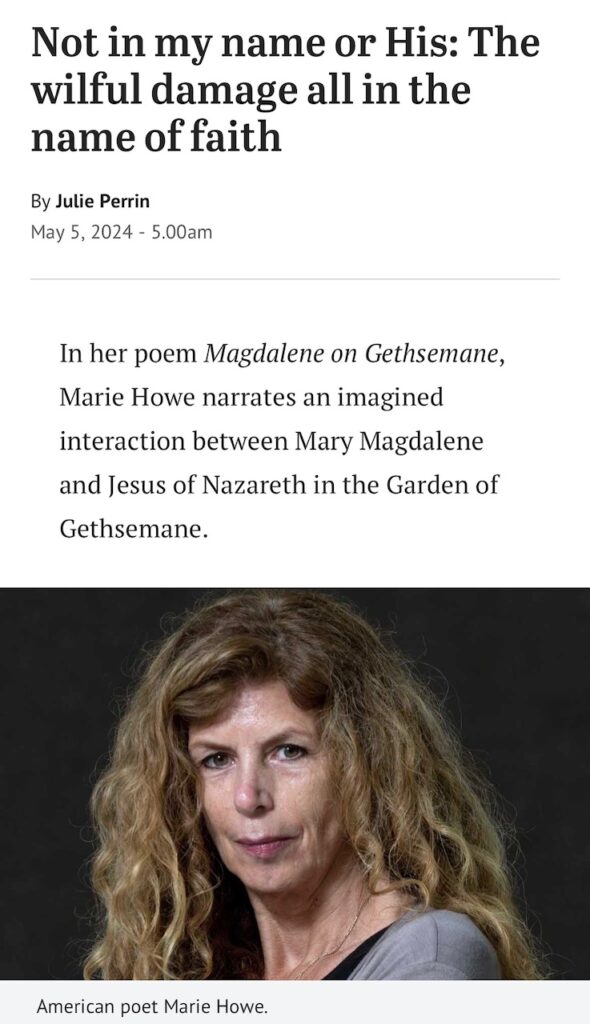
In her poem ‘Magdalene on Gethsemane’ Marie Howe narrates an imagined interaction between Mary Magdalene and Jesus of Nazareth in the Garden of Gethsemane. From Jesus’ agony on the night before his crucifixion, in the voice of the Magdalene, Howe writes:
“When he was in the garden the night before
And fell with his face to the ground
what he imagined was not his torture, not his own death
That’s what the story says, but that’s not what he told me.”
The three lines that follow burn the reader. They resonate deeply with the un-power and non-violence of Jesus. The poet invokes Jesus’ anguish, claiming:
“He said he saw the others, the countless in his name
raped, burned, lynched, stoned, bombed, beheaded, shot, gassed,
gutted and raped again.”
It is hard not to turn away from the ghastly list of verbs. The poet encapsulates the horror of what continues to happen “in his name” and other names by which the Holy One is known.
But in the telling of the poem, there is an implied witness to these atrocities – the suffering is seen. The term “the countless” freights blatant injustices repeated mercilessly. The three words “in his name” carry the weaponizing of belief.
Often when I name myself as Christian, I recoil from the wilful damage caused by practitioners of my faith. And not just my faith tradition, others as well. So many things are not okay, are deeply wrong, are horrors in themselves. These violations occur under the watch of religions that espouse values of peace and human dignity in the name of the divine.
Theologian Gordon Kaufman suggested the most ethical thing a person can say is “I might be wrong.” When we are too sure that we are on the side of right, that we know the mind of God, there is a diminishing and hardening of hearts.
In his life and teaching Jesus was far more interested in how people treated each other than in setting up institutional loyalty. Before his state-sanctioned murder he repeatedly feasted with and offered healing to people whom no one else valued. He ticked off the disciples when they tried to become influencers.
In Australia, periodically we hear voices of indignation championing Christianity as if defending a brand. This defensiveness is not necessarily a witness to faith, often it looks like posturing.
The life, death and risen life of Jesus of Nazareth were and are subversive. The task of re-imagining and understanding anew how the biblical stories can resonate, allows an ongoing dialogue with them. In ‘Magdalene on Gethsemane’, Marie Howe suggests a new possibility, that Jesus’ agony was on account of what would follow, ‘in his name
Julie Perrin.

